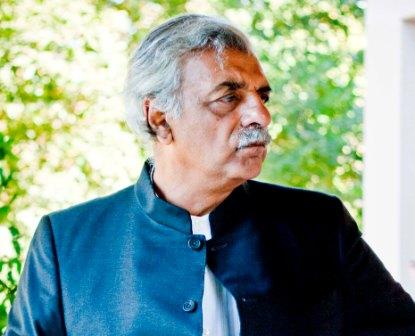
Writer, journalist, filmmaker and public intellectual Dr Tariq Ali addressed a capacity crowd at Eden Grove this week on the current uprisings in the Arab world and their links to contemporary history and the international community.
In his talk entitled “The West, the Arab World and its Discontents”, Dr Ali, who was born in Lahore in 1943 and educated at Oxford, attributed the current uprisings in the Arab world to widespread dissatisfaction with the neo-liberal capitalism system.
“This particular system punishes the poor and rewards the rich, who are blinded by greed. Things reached a breaking point and uprisings were triggered because of the inability of the elite to deal with the discontent and the refusal of the poor to continue living in dire conditions,” he said.
To fully understand the current dynamics of the Arab uprisings, Dr Ali said it is necessary to consider the history of South America’s 1990s revolts against neoliberalism and imperial globalisation. “The interesting thing about the South American struggles, which I believe have had a huge impact on the Arab world, is they marked a new type of struggle in which social movements from below were organised differently from traditional labour movements.
They built new layers of action and cadres and gave rise to new political parties who contested elections, promised certain things and actually delivered when they were elected,” he said. Dr Ali said he believes there are links between the current Arab uprisings and the struggles in South America, because “in both cases the people were just fed up. This took the western world by surprise. They were not expecting it,” he said.
In considering the trigger of the recent Egyptian uprisings, Dr Ali said he believes recent events in Tunisia, in which the unemployed took on the elite in a series of riots after building discontent following the economic crisis of 2008, played a crucial role. “After the Tunisians, who are regarded as soft-natured people in the Arab world, had taken on their government and demonstrated their dissatisfaction with the level of greed in the administration, the rest of the Arab world thought, ‘Well if the Tunisians can do it, so can we.’ Tunisians are generally a people who carry on with their lives without too much fuss, so when they marched and got rid of their dictator, the whole Arab world erupted,” he said. Before long, , the Tunisian ripple became a wave and engulfed the Arab world.
Ideology also played a crucial role in the uprisings as explained by Dr Ali. “One of the most powerful things that has huge consequences is a widespread loss of fear of death. When people lose one of the most important fears in the lives of human beings, that of dying, they are capable of performing political miracles. The repression was heavy enough to cause this to happen, and when it gave, anything was possible,” he said.
Although Dr Ali acknowledged the importance of the current Arab uprisings and their potential effect on the international community, he said he would not go so far as to classify them as revolutions. “I wouldn’t classify them as such because they are not systemic in nature. They are uprisings to get rid of dictators who have sat on the neck of people for up to 40 years and the people had just had enough,” he said.
How the uprisings pan out will depend largely on what the people demand and whether they attain these demands, Dr Ali said. “The cancer of corruption runs deep in these societies, and the people need to create visible alternatives to the existing structures to rid themselves of the problems,” he added.
Dr Ali owned his own independent television production company, Bandung, which produced programmes for Channel 4 in the UK during the 1980s. He is a regular broadcaster on BBC Radio and contributes articles and journalism to magazines and newspapers including The Guardian and the London Review of Books. He is editorial director of London publishers Verso and is on the board of the New Left Review, for whom he is also an editor. He is author of some 24 books, including Can Pakistan Survive? The Death of a State (1991), Clash of Fundamentalisms: Crusades, Jihads and Modernity (2002), Bush in Babylon (2003), Conversations with Edward Said (2005), Pirates of the Caribbean: Axis of Hope (2006) and The Obama Syndrome (2010).
Story by Sarah-Jane Bradfield
Photo by Sophie Smith
